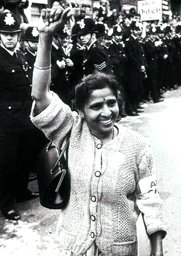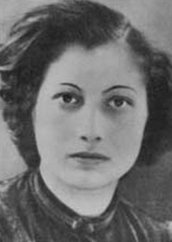- Home
- News & Blogs
- About Us
- What We Do
- Our Communities
- Info Centre
- Press
- Contact
- Archive 2019
- 2015 Elections: 11 new BME MP’s make history
- 70th Anniversary of the Partition of India
- Black Church Manifesto Questionnaire
- Brett Bailey: Exhibit B
- Briefing Paper: Ethnic Minorities in Politics and Public Life
- Civil Rights Leader Ratna Lachman dies
- ELLE Magazine: Young, Gifted, and Black
- External Jobs
- FeaturedVideo
- FeaturedVideo
- FeaturedVideo
- Gary Younge Book Sale
- George Osborne's budget increases racial disadvantage
- Goldsmiths Students' Union External Trustee
- International Commissioners condemn the appalling murder of Tyre Nichols
- Iqbal Wahhab OBE empowers Togo prisoners
- Job Vacancy: Head of Campaigns and Communications
- Media and Public Relations Officer for Jean Lambert MEP (full-time)
- Number 10 statement - race disparity unit
- Pathway to Success 2022
- Please donate £10 or more
- Rashan Charles had no Illegal Drugs
- Serena Williams: Black women should demand equal pay
- Thank you for your donation
- The Colour of Power 2021
- The Power of Poetry
- The UK election voter registration countdown begins now
- Volunteering roles at Community Alliance Lewisham (CAL)
Remembering Jayeban Desai and Noor Inayat Khan
It is all too frequently the case that the struggles and achievements of women are resigned to the footnotes of history books and the mass media.
It was therefore with delight and pride, but also some surprise that I noted two stories of female pioneers getting substantial print coverage and airtime at the start of 2011.
It was reported that Noor Inayat Khan, a British subject and secret agent would be commemorated with a statue in central London, and that Jayeban Desai, the trade union strikes leader had passed away.
 Jayeban Desai, who died having been ill for several months, is best known as the woman who was at the forefront of the Grunwick dispute, at a fim processing factory in North London. Born in 1933 in the Gujarat, India she settled in the UK in 1969 after spending her early life in Tanzania, East Africa.
Jayeban Desai, who died having been ill for several months, is best known as the woman who was at the forefront of the Grunwick dispute, at a fim processing factory in North London. Born in 1933 in the Gujarat, India she settled in the UK in 1969 after spending her early life in Tanzania, East Africa.
Like many immigrants then and now she took manual labour work in factories, for little pay and long hours, yet had to tolerate plenty of abuse from the bosses.
As an 'accidental' strike leader she was thrust into the spotlight and became the symbol of women and Asians on low pay, working in poor conditions and with few employee rights. She was often disparagingly described by the Fleet Street press as one of the 'strikers in saris'.
The strike lasted for over two years, with TUC support for Desai, her fellow workers and the Association of Professional, Executive, Clerical and Computer Staff (Apex).
Following condemnation from the Employer Trade Union MAFF and the Conservative opposition the TUC ultimately withdrew their support; Desai staged a hunger strike protesting the decision.
Desai who stood at 4’1 will ultimately be remembered for two iconic moments: her clenched fist Black power salute while taking a solitary walk to greet fellow protesters between two uniformed lines of police officers; and her defiant message to the factory bosses: "What you are running here is not a factory, it is a zoo. In a zoo, there are many types of animals. Some are monkeys who dance on your fingertips; others are lions who can bite your head off. We are those lions, Mr. Manager."
Depsite the Equal Pay Act of 1970, many people continued being treated unfairly. It would be another decade before trade unions took up the fight of Black workers.
Years later in an interview reminiscing over the life she lived she said: "I am proud of what I did. They wanted to break us down, but we did not break."
In the long term Jayeban Desai's will remembered for bringing the fight for Black workers rights to the foreground. She leaves behind her husband Suryakant, and sons Shivkumar and Rajiv, all of whom were fiercely proud of her for among many things exploding the myth that Asian women were only silent and subservient, housewives and mothers.
 Another trail blazer Noor Inayat Khan died before Jayeban Desai had even set foot on UK soil and has a story that in many ways couldn’t be more different. As one of Winston Churchill's elite Special Operations Executive secret agents, she has remained largely forgotten.
Another trail blazer Noor Inayat Khan died before Jayeban Desai had even set foot on UK soil and has a story that in many ways couldn’t be more different. As one of Winston Churchill's elite Special Operations Executive secret agents, she has remained largely forgotten.
Khan was born on New Years Day 1914 in Moscow to an Indian father and American mother. As a child during the outbreak of the First World War she emigrated to live in London and then Paris. Despite a lavish lifestyle she had a rebel gene having been a direct descendent of Tipu Sultan, the renowned 18th century Muslim 'Tiger of Mysore' who refused to submit to British rule and died in battle.
At the outbreak of the Second World War they returned to London. Despite her Sufism which advocated non violence she soon joined the Allied efforts, and was recruited as the first female radio operator sent into Nazi-occupied France. For three months she single-handedly ran a cell of spies across Paris until she was betrayed and captured.
The Gestapo desperate for any information about SOE operations, imprisoned her for ten months and tortured her, but she stood firm, divulging no details of her operations. Khan was eventually executed at Dachau concentration camp on September 13, 1944, aged just 30.
In a letter to a friend she wrote: "I wish some Indians would win high military distinction in this war. If one or two could do something in the Allied service which was very brave and which everybody admired it would help to make a bridge between the English people and the Indians."
In 1949 was she was posthumously awarded the George Cross and the French equivalent the Croix de Guerre. This week resulting from the persistent efforts of her biographer Shrabani Basu, her bravery is finally to be permanently recognised with a bronze bust in central London, close to the Bloomsbury house where she lived as a child. It will be the first statue to commemorate a Muslim or an Asian woman and has won the backing of 34 MPs and prominent British Asians.
From very different backgrounds and in very different ways Noor Inayat Khan and Jayeban Desai broke down the barriers for women and Black people. They will be remembered for their struggles and achievements, as well as their courage and leadership.
Ashok Viswanathan
